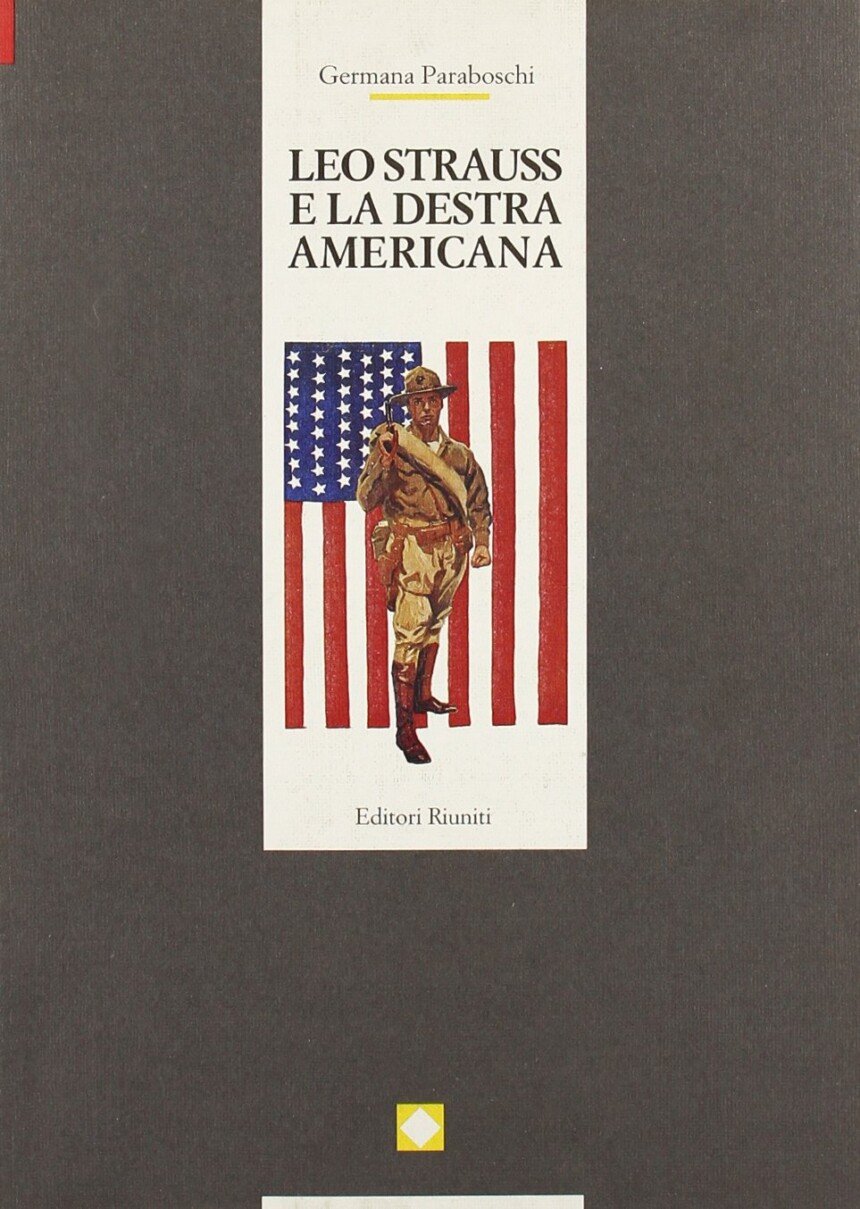Dr. Germana Paraboschi’s Leo Strauss e la destra americana (Leo Strauss and the American Right) is one of the few serious studies of the American right to come out of Italy. Dr. Paraboschi is a young scholar, born in Milan in 1961 and now living just outside Pavia. She spent several years in the United States, studying American conservatism. But curiously enough, her book was published by Roman Editori Riuniti, the publishing house of the Democratic Party of the Left, born from the ashes of the Italian Communist Party (an example of how leftists are light-years ahead in the cultural war, and in studying the enemy).
After surveying the movements that made up the postwar American right, Paraboschi ponders the work of Leo Strauss and the debate between the different Straussian schools. She reconsiders the Burkean school within the Old Right and sets the thought of Paul Gottfried and Claes Ryn—two scholars who decisively support transcendent values and thus escape the relativism popular in European historiography—as the main alternative to Strauss and the Straussians. To her, Gottfried and Ryn are correct in stressing the importance of principles to a sound and self-conscious philosophy of conservative thought. They realize that historical consciousness must be grounded on values, of which history itself is the vassal.
Paraboschi also analyzes Strauss’s defense of objective values and Natural Law. As she explains it, the Straussians abstractly approach Natural Law as if it were a Shakespearean persona to advance one’s own agenda; they try to lend legitimacy to their arguments before traditional and conservative audiences with frequent references to antiquity. But actually, there is nothing ancient or traditional (in the Latin sense of tradere, to hand something down) in their arguments, which defend objective values out of their context and historical dimension. The Enlightenment and the French Revolution did the same thing, considering values and virtue (public virtue to be advanced forcibly by the Leviathan state, the only source of right and wrong) in an abstract way.
Guido Alpa, in the introduction to the new Italian edition of Strauss’s Natural Right and History, states that when the first Italian version of this book was published in 1957, liberals and secularized Italians rose up against it, since Natural Law was considered a heritage of classical thought, commonly judged “reactionary” and defended only by Roman Catholics. Alpa gives this as the reason why Strauss is not appreciated in Italy, a country surrounded and polluted with a progressive, liberal, and radical culture.
On balance, I consider it absurd to attack and undermine Natural Law theory by using history in this abstract way. The founding of America, for example, showed first principles embodied in a particular time and place. But if we consider the self-evident truths and the language of the Declaration of Independence both as a supreme revelation of a historical reality, and as the sole light by which to view the whole American experience, we fall into the mistake of not considering what actually happened (the concrete reality of history), and to give to words and facts a presumptive meaning out of context. This is the way liberal European scholars normally interpret the American Revolution—i.e., as a subversive, progressive, even radical invention announcing the new age of ideology and the arrival of the Leviathan state. The French Revolution was such an invention, but not the American one; nor was the American Revolution the willing parent to the French Revolution.
Separating itself from abstract Natural Law theory, from idealism, and from relativistic historicism, true conservative thought has to defend the alliance of historical consciousness with supreme objective values. As Russell Kirk said, “History . . . is the gradual revelation of a supreme design—often shadowy to our blinking eyes, but subtle, resistless, and beneficent. God makes history through the agency of man.”
The work of Paul Gottfried and Claes Ryn’s National Humanities Institute—aimed at defining and defending “value-centered historicism”—is the philosophical good battle being fought today. It is also the important premise for establishing a sound philosophy of history connected to what medieval scholasticism called quaestio de veritate (the question of Truth). Here is a true counterrevolutionary and conservative philosophy.
[Leo Strauss e la destra americana, by Germana Paraboschi (Rome: Editori Riuniti) 162 pp.]

Leave a Reply